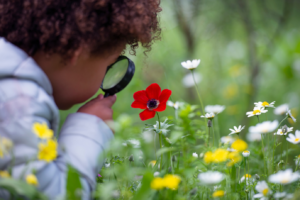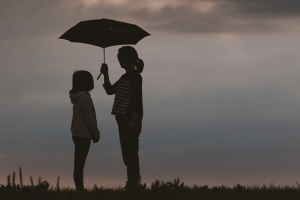Why Do Kids Get Stuck on Certain Tasks?
When we focus on our kids’ learning process over their final product, we can take steps to help them overcome hurdles.
In our daily lives, there is a premium on product or getting things done. Whether it is chores, homework, or getting to places on time, executing tasks is highly prized. In the immediate, there is a sense of gratification and some relief that it can be checked off the list. Each hurdle cleared can offer a sense of accomplishment as a parent, teacher, or child.
Many parents rely on checklists, rewards, and punishments to encourage their children to get things done. This is a common approach and may mirror how we, as adults, support ourselves to meet our own commitments. However, children are emerging in their development and ability to get things done. There are many steps in learning to dress oneself, ride a bike, or read. Focusing on the completion of a task may lead one to miss a challenge that is getting in the way of the process. It is therefore important to shift the focus from emphasizing product or outcome to considering the smaller steps or the “process.”
There are four lenses that can be used to bring to light where process challenges may be getting in the way. Once identified, it is easier for you to align with your child to support them so that they, feeling your support, can build their foundation for success! These four lenses look at health, sensory/sensation and the coordination between sensation and movement, emotions/feelings/memories and thinking. To illustrate the contribution of each of these aspects, let’s look at what it takes to learn to read.
Health
First, we look at health. Feeling up to the task is essential to tackling any complicated task. If we are tired, sick, or hungry, we don’t function well. More obscure health impediments may be harder to identify. These may include allergies, digestion issues, or other more chronic health conditions. When physically compromised, small challenges may feel insurmountable. At these times, learning anything new is unlikely.
Sensory/sensation and coordination between sensation and movement
Next let’s look at the sensory-motor system. To learn to read requires a child to see letters and hear sounds. Vision and hearing screening are part of early screenings so they can be addressed and these obstacles removed. Beyond checking on how these senses are functioning, some children can get overwhelmed or bombarded by sensations. Sounds, smells, touch, taste, and sights can be experienced as too intense. Alternatively, some sensations may require greater intensity to register. Furthermore, there is a lot to coordinate between sensations and the information they provide to support movement and action in the world.
Consider all the streams of sensory information involved in distinguishing letters against the background page to identify them based on shape necessary to build words and finally having eyes move across a page of type to track sentences. All these mechanics are operating behind the scenes to support reading. Your clues to sensory challenges only come to light when you look for how your child is responding to sensations and begin to ask questions like: “What is going on in the environment when is my child isn’t paying attention, is disconnecting, or becoming easily frustrated?” Similar challenges can occur in more active moments where coordination between sensation and movement is called for. For some children, the sound and chaos on the playground or the surprise touch in a game of tag can be overwhelming, leaving them to look lost or checked out.
Emotions
The realm of emotions is the next lens to look through. Growing from play and joy to buckling down to focus on schoolwork is a difficult transition to make. We often experience this resistance ourselves when we have to stop doing something we are enjoying to pick up kids from school, put gas in the car, or file our taxes. It is this shift that children learn to manage when presented with doing homework or chores. Some kids find this more challenging than others. Once developed, this capacity is foundational to tackling the many demands of life. Growing up requires learning about what prompts their emotions, what their emotions mean, and how to manage them.
The question here is, “What is my child’s emotional response to the challenge?” Bringing curiosity to your child’s emotions can reveal struggles your child is encountering on the playground or classroom. Using reading as our example, children are often acutely aware of their reading level compared to others in their classroom. If reading is challenging, your child may feel sad, embarrassed, fearful, frustrated, or angered, which can make learning to read more difficult. Without curiosity about your child’s emotions, you may miss social or academic challenges that are behind your child’s behavior, leaving your child to struggle alone.
Acting with purpose
Finally, there are challenges your child may have with managing their effort: putting on brakes when needed, getting themselves going, shifting their attention and organizing themselves. This requires the ability to engage and focus attention. This ability grows over time as a child learns to manage impulses to honor “no” and follow rules. Learning to sequence behavior emerges with taking toys out, playing with them, and then putting them away. As children grow and their brains mature, they begin to link cause with effect, so they can learn to delay gratification to put in effort now for some future reward.
With the other three potential sources of challenge, health, sensory, and emotions, considered, you can turn attention to examine this realm. There are many questions that can be considered here such as, “Does my child have difficulty getting through basic routines? Does my child get lost on the way to put their shoes on? Does my child forget to put the milk back in the refrigerator? Does my child have difficulty transitioning from one thing to the next?” It can be hard for your child to complete a task when they encounter difficulties with focus, attention, short term memory, or sustained effort. As a result, they have trouble putting the building blocks in place to move from simple to more complex tasks.
Summary
We are complicated beings. There are many components that need to come together to support the ability to get things done. This is where checklists that target outcome or product may run into difficulties. When a child resists or has difficulty executing a task, it is time to take a step back and begin to get curious and wonder about what is going on. To execute a task, the child must have the requisite ability and this can get missed. Like teaching the ABCs to learn to put words together and then sentences in order to be able to read, there are a lot of steps that lead to up to being able to get things done.
The shift in attention from product (getting a task done), to looking at process is a powerful one! Your child is resisting for some reason. As you consider the elements that underlie “resistant” behavior, many dimensions can come to light and opportunities to help open up. When we consider this, it can be easier to offer grace and support when challenging behaviors emerge. With consideration of the four different lenses, opportunities are revealed to align with your child on their path to achievement!

In this Webinar: When it comes to parenting advice, it can feel like there are just too many cooks in the kitchen. From…









